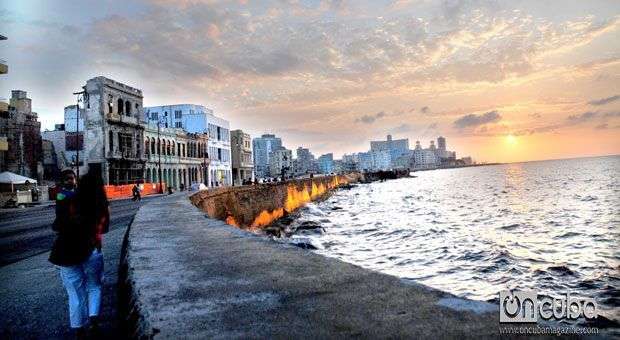Cuban writers inspire again filmmakers around the world. The creations of three representative contemporary authors: Wendy Guerra, Leonardo Padura and Pedro Juan Gutiérrez, serve as a pretext for Colombian, French and Spanish filmmakers to offer their vision of the Island.
¨Todos se van, ¨the first novel by Wendy Guerra, awarded in 2006 with Bruguera First Prize, was brought to celluloid by renowned Colombian director Sergio Cabrera. It is already in post-production process in Bogotá. The director tried to film in Cuba, country where the literary text is develops, but did not have the necessary authorizations so locations were moved to the coast of Colombia. Rachel Mojena, Yoima Valdés and Abel Rodríguez are the stars of the film that tells the story of Nieve, an eight- year-old girl whose journey from childhood to adolescence is not a bed of roses. She feels an immense solitude when seeing how they all leave and abandon her. In the words of its author, “is a story of pain, growth and strength in the adult fight of a girl for having a consistent existence in the complex reality of Cuba in the seventies.”
Cabrera is one of the most important Colombian filmmakers; he has participated as a juror at Havana Film Festival and is the director of ¨La estrategia del caracol¨, film from 1994 which won in Berlin and Biarritz, among other international competitions.
¨Regreso a Itaca, ¨a film the renowned French director Laurent Cantet, who won the Palme d’Or in Cannes for his film The Class in 2008, has just finished filming deals with universal themes such as loyalty, friendship, love, hate, betrayal, fear and disappointment.
On locations of Centro Havana municipalities, with the seawall as a backdrop, Cantet tells the story of Amadeo, who left Cuba when the immigration laws were still very different, which he tried to transfer to present time, as he expressed.
Speaking exclusively to OnCuba, Padura, the scriptwriter, expressed his satisfaction with the project to be completed by mid-year. “It’s an original script inspired by a passage from ¨The Story of my Life¨ and particularly upon the chapter on the reunion with the Island of a Cuban who immigrated to Spain and decides to return to his country fifteen years later. I think it will be a great movie, the film of my generation, because it touches the problems of those who live in that era, those that marked us the most. “
Starring the renowned Cuban actors Jorge Perugorría, Isabel Santos, Nestor Jimenez and Fernando Echevarría the film was funded by the French and Belgian producers Full Hause and Panache Productions, among others.
Cantet repeated experience with Padura with whom he worked on the same soil in the film Seven Days in Havana.
Once again Centro Havana works as scenario for Pedro Juan Gutierrez’s second novel, which will soon begin filmed by Spanish multi-awarded director Agusti Villaronga, who, among others, has earned nine Goya Awards.
Villaronga returns to cinema after the success of ¨Pan Negro¨ with the story of Reinaldo, a young man who escapes from a prison and gets from his deep poverty into the strata of a sordid and infinite Havana. Then he meets the charismatic and unscrupulous teenager Magda, another survivor to the miseries of the city and he falls in love with her. The story of both of them will be marked by disillusionment, sex, sweat and tenderness, as many of the works of the author.
OnCuba also spoke with Pedro Juan for details of the film. “The script is finished, excellent adaptation by Villaronga; production and pre-filming advance . We already have the locations and the casting in which they chose very young actors, none known, was also done. It’s supposed shooting to start this summer, although producers are getting some permission yet. It pleases me a lot this book to be chosen for a movie, because it is a very endearing novel that took me a lot to conceive it, “the writer said.
These are three views, from different latitudes on three novels that undress the city of columns from the personal perspective of those who have lived it in their own skin. Now it comes the Havana vision by filmmakers that have lived it as tourists, I hope them not to resort to clichés and platitudes with which the capital of all Cubans has been stereotyped.










